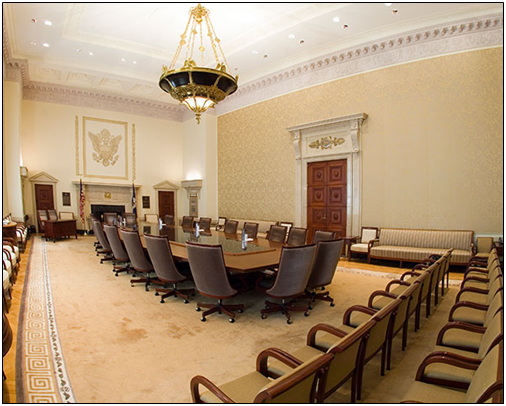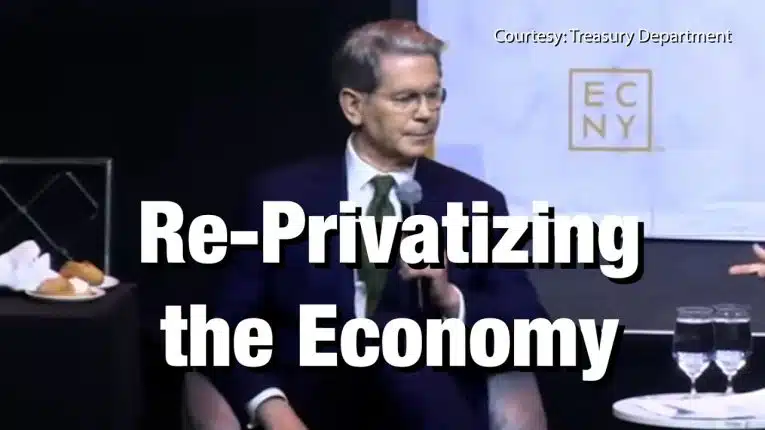
By Rick Manning
Debit cards are ubiquitous in America. Virtually everyone with a bank account has them as a convenience to allow relatively easy access to one’s own money.
Obviously, these cards cost the issuer money to service each transaction with the Federal Reserve Board designated under the 2010 Dodd-Frank law to set these costs. But somewhere in the translation, the Fed has lost track of its actual mission. Take a look at their currently proposed regulation to change the debit card transaction fee formula.
To be clear, this is not referring to the fee some independent money machines charge to use debit cards, or the amount charged by some banks on transactions originating out of their banking system. Instead, the fees affected by the proposed Federal Reserve regulation are the small underlying processing fee that your bank collects with each debit card transaction known as the Debit Card Interchange Rate fee.
The Federal Reserve’s website lays out the governing mission of the Board with “conducting the nation’s monetary policy to promote maximum employment, stable prices and moderate long-term interest rates” listed first as one of its functions.
The other four functions of the Federal Reserve are to “promote the stability of the financial system and seek to minimize and contain systemic risks…”, ‘promote the safety and soundness of individual financial institutions…”, foster ‘payment and settlement system safety and efficiency through services to the banking industry…” and ‘promote consumer protection and community development…”.
Nowhere does it list changing banking fee structures to the detriment of small and mid-size banks financial stability to benefit retailers ultimately harming consumers. In fact, destabilizing revenues to the detriment of consumers is directly counter to the Fed’s stated mission.
Yet that is exactly what the Fed’s new proposed regulation would do.
A new White Paper entitled “How Proposed Interchange Fee Caps Will Affect Consumer Costs, by the former Director of Consumer Finance at the liberal Pew Charitable Trusts, puts a possible $2 billion increased consumer cost if this rule is finalized.
It is hard to imagine how those working at the Federal Reserve thought that changing the interchange fees helped ‘promote the safety and soundness of individual financial institutions” or promoted the stability of the financial system, let alone benefitted consumers. After all, the reason that the above mentioned study concludes that consumers will have additional costs is because the revenues lost by the banks due to this new regulation would have to be recovered through making banking more expensive for consumers. Just another inflationary cost increase that could be blamed on businesses, which were directly the result of regulatory malfeasance.
And as is the case with most of these types of ‘ideas that sound too good to be true’ which come from Washington, D.C., it is. Bank customers with large balances are unlikely to feel the brunt of these costs, instead it will be those who are struggling to make ends meet whose cost of banking will go up through higher bank fees to cover the Biden Federal Reserve’s mandated lost revenues.
The fact is that Congress has been battling for years over the question of whether these fees should go to the banks or if the retailers should get a taste of them as well. It is a major political battle, and one which Congress has so far decided to leave the status quo intact.
Now with the proposed Regulation II, the Federal Reserve has decided that rather than being neutral and just managing the banking system, they are going to try to put their thumb on the scales against the very entities which they are entrusted to make certain are financially stable.
The regulation itself admits that the proposed transaction fee price mandates are only the result of consultation with major banks, most of whom have been deemed ‘too big to fail.”
But it has been small to mid-sized banks who have most felt the financial pressures of rising interest rates with some like the former Silicon Valley Bank failing outright last year, creating a banking crisis.
Consumer Bankers Association President and CEO Lindsey Johnson sounded the alarm stating, “The Federal Reserve Board’s proposal would boost revenue for merchants at the expense of consumers.”
Johnson further warned that the proposed rule would only lead to higher costs for consumers and less access to banking services.”
The Federal Reserve’s job is to worry about interest rates and keep the banking system stable while watching out for consumers. Their latest proposal is an expensive swing and miss, and should be withdrawn and tossed on the trash heap of bad ideas that never should have gotten as far as they did.
Rick Manning is the President of Americans for Limited Government.






